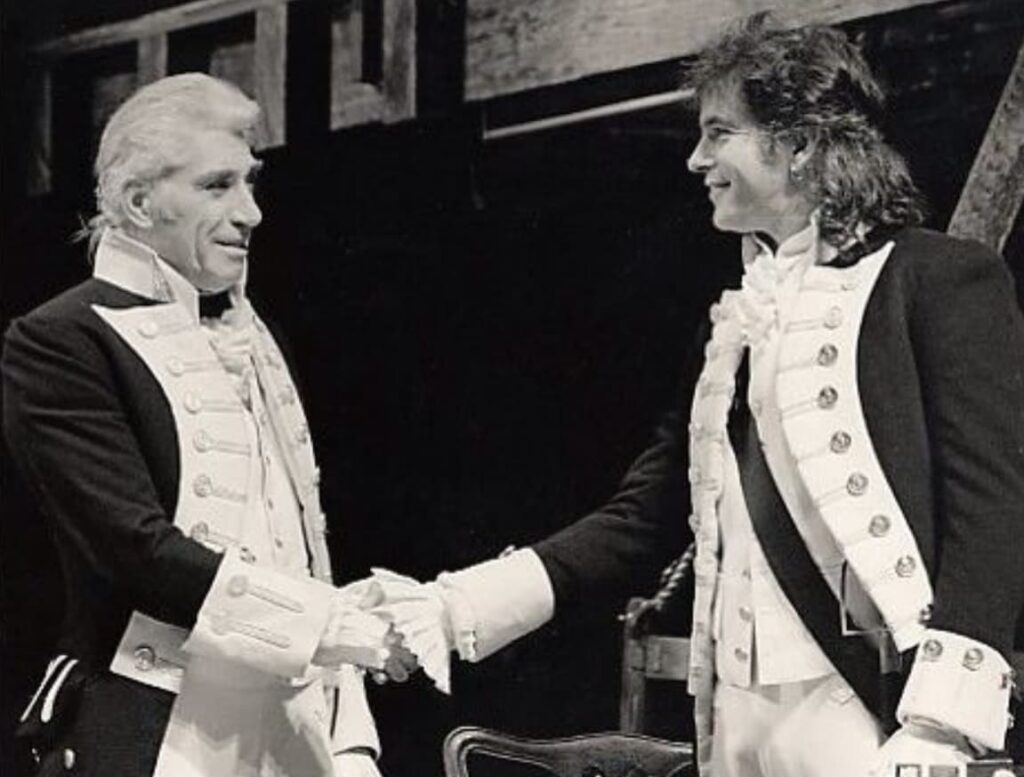
“A New Argentina” is a triumphant anthem of populist fervor and revolutionary promise, capturing the birth of a political movement that would forever change a nation.
For those of us who came of age in the vibrant, tumultuous era of the late 1970s, the name David Essex evokes a potent mix of memories. He was the quintessential British heartthrob, the leather-jacketed rock and roll rebel who had already charmed us with hits like “Gonna Make You A Star” and “Hold Me Close.” Yet, in the summer of 1978, he did something entirely unexpected. He traded his silver dream machine for the stage of the Prince Edward Theatre, stepping into the fiercely political and darkly cynical world of Tim Rice and Andrew Lloyd Webber’s theatrical masterpiece, Evita. It was a bold move, one that allowed him to showcase a different kind of artistry, and in doing so, he etched an unforgettable moment into the collective memory of a generation.
The song “A New Argentina” wasn’t the radio hit from the show—that distinction belonged to the soaring, iconic ballad, “Don’t Cry for Me Argentina” and Essex’s own electrifying single, “Oh What a Circus,” which he took to a formidable No. 3 on the UK Singles Chart. While “A New Argentina” never saw a release as a commercial single, its importance transcends chart positions. It is the very heartbeat of the musical’s first act, a moment of electrifying drama that captured the essence of hope and change.
The story behind it is a pivotal one, both for the characters and for the show’s narrative arc. As the masses of Argentina rise up in a desperate, organic movement, they demand the release of the newly imprisoned Colonel Juan Perón. Leading this surge are the two central figures of the story, Eva and Che. The song begins with the frantic, jubilant cries of the descamisados—the “shirtless ones”—who see in Perón a champion and in his mistress, Eva, a rising star of their own. David Essex, in the role of Che, acts as our sardonic guide through this chaotic scene, a disbelieving voice in the midst of a fervent crusade. His lines are sharp and questioning, a stark counterpoint to the boundless optimism of the crowd.
The genius of “A New Argentina” lies in its construction. It’s a dynamic, multi-layered piece that builds with a relentless, anthemic power. As the orchestra swells with a sense of destiny, the voices of the people, Joss Ackland’s imposing Perón, Elaine Paige’s driven Eva, and David Essex’s skeptical Che all converge. It’s the moment where Eva sheds her past as a provincial actress and embraces her fate as the political force she was always destined to be. Her voice soars above the chorus, rallying the populace to not just release her lover, but to ignite a new age for their country. The promise is intoxicating, a promise of a new, fairer world built on the backs of the forgotten.
For anyone who saw that original London production, this was the moment that sent shivers down the spine. The stage was filled with a tangible energy, a collective shout of defiant optimism. It felt revolutionary, not just on the stage but in the stalls. It was a mirror held up to a world where political turmoil was a constant undercurrent, and the idea of a people’s revolution, led by a charismatic figure, felt both thrilling and slightly terrifying. We watched the future of a nation being forged in a single, powerful song, and for a few soaring minutes, we, too, believed in the promise of that “New Argentina.” It was a powerful reminder that music, in its most potent form, is not just a soundtrack; it’s a time machine, transporting us back to moments of shared experience, of youthful idealism, and of the raw, undeniable magic of the theatre.